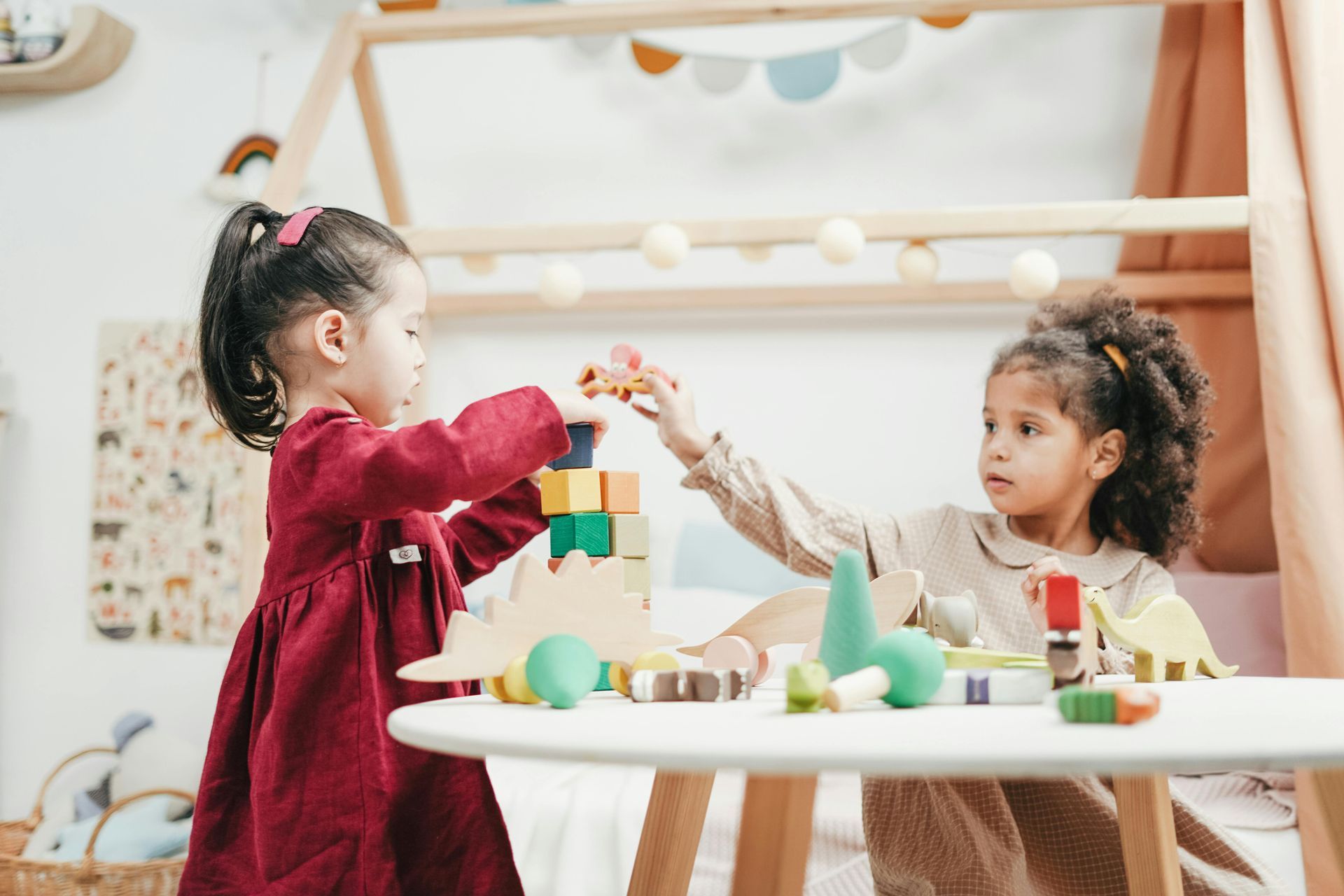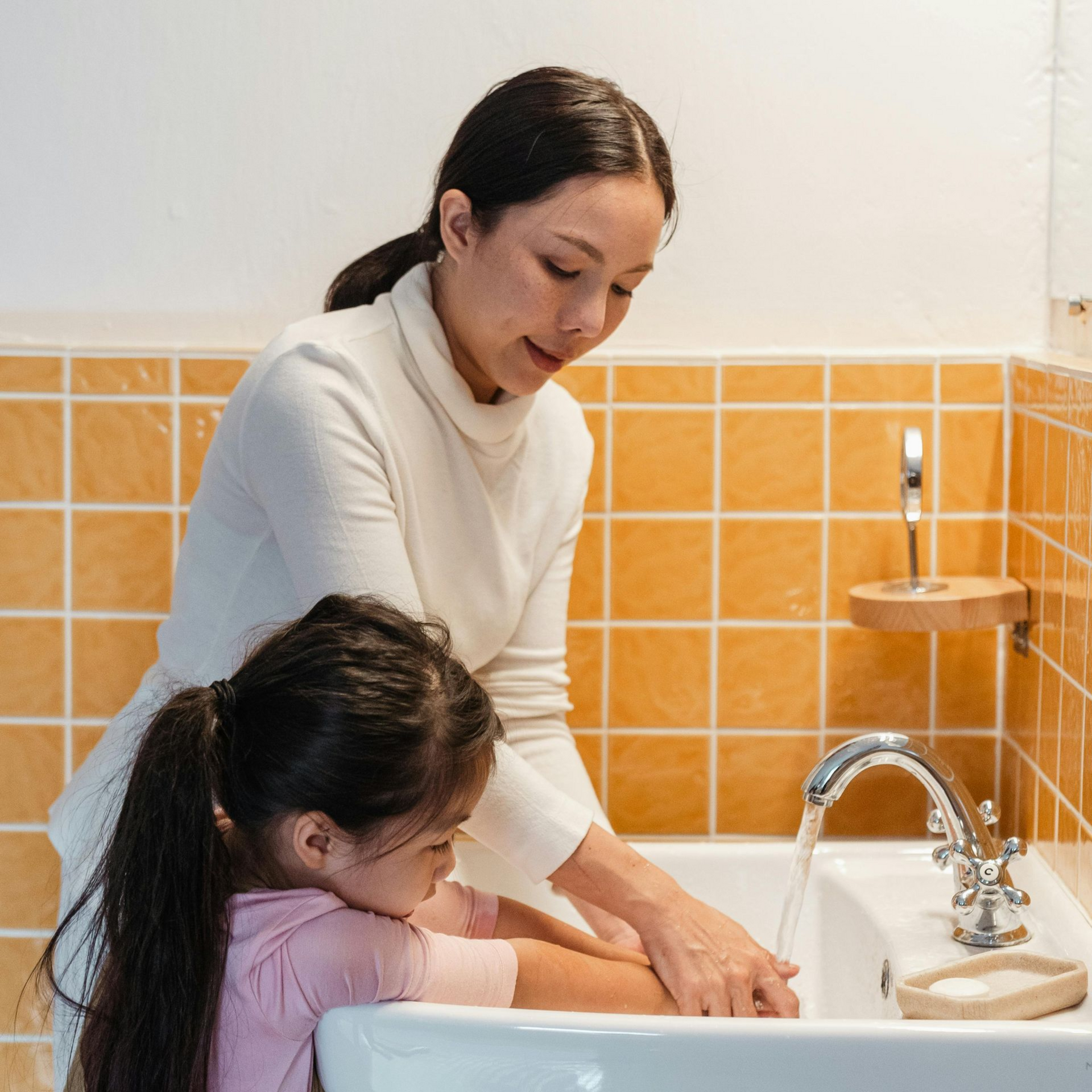Potty Training in the Community: How to Help Your Child Succeed Beyond Home
Potty training at home is one thing—but what happens when your child needs to use the bathroom out in the community? Whether it’s a trip to the grocery store, a restaurant meal, or a day at the park, community potty training presents its own set of challenges.
This is the third part in our series on potty training, to read the other articles in our series:
For many parents, questions quickly come up:
- “How do I manage when bathrooms aren’t close by?”
- “What if my child refuses to use public toilets?”
- “How can I help my child with autism feel comfortable in new settings?”
The good news is that with preparation, patience, and ABA-based strategies, children can successfully generalize their potty training skills to community environments.
Why Community Potty Training is Different
At home, children benefit from familiar routines, predictable bathroom setups, and fewer distractions. Out in the community, those supports are less reliable. Some of the most common challenges include:
- Access & Availability: Bathrooms may be far away, hard to find, or busy.
- Hygiene & Sensory Issues: Loud flushes, hand dryers, bright lights, and smells can overwhelm children—especially those with autism.
- Routine Disruptions: Meals, play, and travel can interfere with regular bathroom schedules.
- Performance Pressure: Parents may feel anxious about accidents in public, which can heighten a child’s stress.
ABA emphasizes that skills must be generalized across settings—so potty training isn’t complete until a child can manage toileting at home and in the community.
What’s Typical?
It’s common for children—even those who are potty-trained at home—to struggle in public spaces at first. For example:
- Many toddlers hesitate to sit on unfamiliar toilets.
- Children with autism may resist due to sensory sensitivities.
- Some children “hold it” until they return home, leading to discomfort or accidents.
Pediatricians and ABA professionals reassure parents that these challenges are expected, not signs of failure. What matters most is helping your child build confidence and comfort step by step.
ABA Perspective: Building Community Potty Training Success
1. Start Small and Build Up
- Begin with short community trips (10–15 minutes).
- Gradually extend outings once your child demonstrates success.
- Always schedule potty breaks before leaving home.
2. Scout Bathrooms Ahead of Time
- Know where bathrooms are located at stores, parks, and restaurants.
- Use apps or maps to plan stops during longer outings.
- Reduce uncertainty for both you and your child.
3. Bring Comfort Items
- A familiar potty seat insert, wipes, or travel potty can ease the transition.
- Consider noise-canceling headphones for children sensitive to flushes or dryers.
4. Use Visual Supports
- Create a “Community Potty Book” with pictures of public restrooms, toilets, sinks, and hand dryers.
- Use social stories to explain expectations and reassure your child about the process.
5. Reinforce Successes
- Celebrate even small steps, like walking into the bathroom or sitting briefly on the toilet.
- Use stickers, tokens, or verbal praise immediately after attempts.
- Remember: consistency across settings accelerates generalization.
6. Prepare for Accidents
- Always carry a change of clothes, wipes, and a discreet bag.
- Keep reactions calm and supportive—avoid shaming or showing frustration.
- Reinforce the next successful bathroom attempt rather than dwelling on setbacks.
Special Considerations for Children with Autism
Children with autism may face additional barriers in community potty training:
- Sensory Needs: Hand dryers and automatic flushers can be overwhelming. Covering sensors or using headphones may help.
- Routine Dependence: Unfamiliar bathrooms may trigger refusal. Gradual exposure paired with reinforcement can reduce resistance.
- Communication Barriers: Some children may not ask to go in new environments. Use visuals or portable AAC supports to help them signal the need.
An ABA therapist can design individualized strategies—such as task analyses, reinforcement schedules, and desensitization plans—to meet your child’s unique needs.
When to Be Patient
Community potty training takes time. If your child:
- Consistently refuses public restrooms,
- Seems overwhelmed by sensory input, or
- Experiences frequent accidents despite progress at home…
…it may be best to pause and focus on gradual exposure. Just as nighttime dryness is developmental, community comfort often grows with age and experience.
When to Seek Extra Support
Professional help may be valuable if:
- Your child avoids all public bathrooms, even after months of attempts.
- Accidents significantly interfere with daily outings.
- Your child has autism and struggles with transitions, reinforcement, or sensory sensitivities.
A pediatrician can rule out medical concerns, while ABA services can provide step-by-step, individualized plans.
Final Thoughts: Progress Over Perfection
Potty training doesn’t stop once your child is dry at home—it continues into community life. With patience, preparation, and ABA-based strategies, your child can learn to manage toileting confidently in any environment.
Remember: accidents are part of the process, not setbacks. Every outing is an opportunity to practice, reinforce, and celebrate growth.
If you’re feeling stuck, don’t hesitate to reach out for professional support. We’re here to help families every step of the way—at home, in the community, and beyond.
Accountability
|
Integrity
|
Empathy
|
Collaboration










